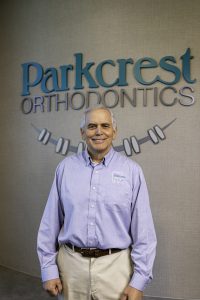Way back when, before the toothbrush and toothpaste, people would use rough cloths, salt, twigs, or chalk to remove grime from their teeth. Thankfully toothbrush technology has advanced and we now have plenty of options when it comes to our dental care.
The bamboo toothbrush has exploded in popularity around the world because of its biodegradability. Just as effective as plastic or electric, a bamboo toothbrush has a bamboo handle and nylon fibers (or in some cases other natural fibers) that are just as strong as plastic. There are plenty of advantages that a bamboo toothbrush can offer.
Parkcrest Dental Group explores the advantages and disadvantages of a bamboo toothbrush, from its function to its biodegradability.
Related Post: Parkcrest Dental Group On Toothbrush Types
What are the main advantages of using a bamboo toothbrush?
Bamboo toothbrushes reduce waste and are actually anti-microbial.
The most widely known and popular advantage, a bamboo-based toothbrush eliminates unnecessary waste while giving you the same quality of cleaning that a plastic brush can offer. With both the packaging and tossing of your toothbrush, recycling, reusing, or composting has never been easier. Here at Parkcrest Dental Group, we recommend changing your toothbrush every one to three months for optimum care. With a biodegradable toothbrush, you can feel better about reaching for that new brush.
Another advantage of bamboo is that it is naturally antimicrobial. There’s a reason cutting boards and kitchen utensils are made out of wood and bamboo. Unlike plastic, properties inside the bamboo kill bacteria that penetrate it’s surface, providing long-lasting protection against harmful bacteria.
Related Post: Parkcrest Dental Group: Toothbrushing Tips And Techniques
What are the disadvantages of a bamboo toothbrush?
With the many advantages that come with choosing bamboo, it’s important to note some disadvantages. Parkcrest Dental Group encourages you, as a consumer, to evaluate all components of a product and make the best decision for you.
For instance, some businesses place their biodegradable product in plastic wrapping, so be careful when you’re shopping for a brush that you choose the company with the right intentions.
Some businesses also advertise Nylon-4 bristles, which have been shown to biodegrade under certain conditions. A closer look, however, will tell you that most are actually made with Nylon-6 bristles that are in fact not biodegradable. An easy way to check which bristle type you are purchasing is on the recycling instructions on the back of the packaging. If you need to remove the bristles before you can compost your handle, then they are probably Nylon-6 or made of some other plastic properties.
While they are customizable as far as colors, they are still your basic toothbrush. There are currently no frills or performance technology like rubber grips or tongue scrapers.
Related Post: General Dentistry Tips: What To Do If You Forget Your Toothbrush
Who can give me professional tips about which toothbrush to use?
It’s easy to see why environmentalists and people everywhere are choosing bamboo. The effectiveness of a bamboo toothbrush on your teeth is equal to those of typical plastic ones, with the added benefit of better environmental impact and antimicrobial properties. Here at Parkcrest Dental Group, we don’t discriminate against brush choices. As long as you are brushing and flossing the recommended two times a day, we applaud you.
Come see why Parkcrest Dental Group is the only place to go for a dentist in Springfield, MO. Call us at (417) 887-1220 to schedule an appointment with Dr. Harrison for your orthodontic care today. Or visit us at 540 W. LaSalle St in Springfield for a tour of our office.





